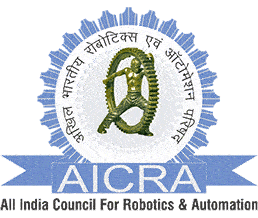- Home
-
PROGRAMS
Robotics & AI Program
Esports Certification Program
Drone & Geospatial Program
- Advanced Certificate in Aerospace Systems & Engineering Design
- Certificate in Aerospace Engineering & Flight Systems
- Post Graduate Certificate in Drone Technology & Autonomous Systems
- Professional Certificate in Drone Technology & BVLOS Operations
- Post Graduate Certificate in Satellite Engineering & Remote Sensing (PGC–SERS)
- Professional Certificate in Satellite Technology & Orbital Systems
- Post Graduate Program in UAV Systems & Geospatial Applications
- Professional Certificate in Geospatial Technology & Applications
- ADMISSION
- News & Events
-
ABOUT NIRA
About NIRA
- Workshop
- Partner With us
- Contact us
PROGRAMS
- AI & Machine Learning
- Robotics
- Smart Manufacturing
- Cloud Computing
- Cyber Security
- Data Science
- Blockchain
- IFES Program
-
NADDSO Program
- Advanced Certificate in Aerospace Systems & Engineering Design
- Certificate in Aerospace Engineering & Flight Systems
- Post Graduate Certificate in Drone Technology & Autonomous Systems
- Professional Certificate in Drone Technology & BVLOS Operations
- Post Graduate Certificate in Satellite Engineering & Remote Sensing (PGC–SERS)
- Professional Certificate in Satellite Technology & Orbital Systems
- Post Graduate Program in UAV Systems & Geospatial Applications
- Professional Certificate in Geospatial Technology & Applications

